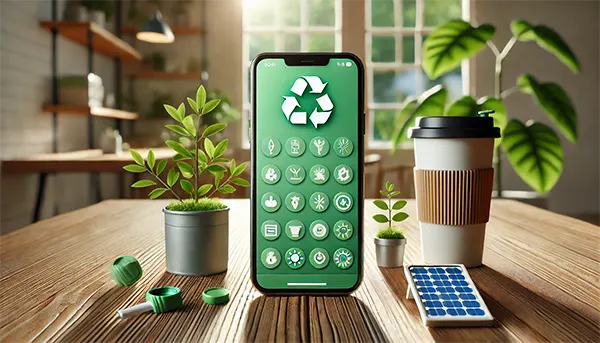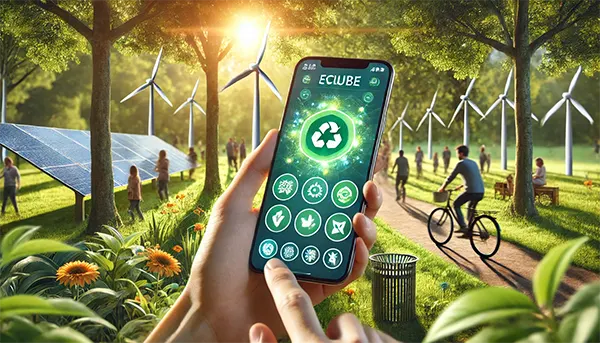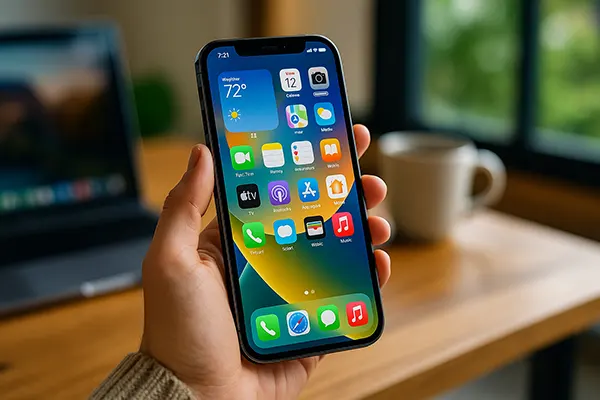Eco-Apps for Smartphones: How to Reduce Your Carbon Footprint Through Mobile Technology

In today’s digital world, smartphones have become indispensable tools for communication, work, and entertainment. However, their use contributes significantly to carbon emissions through energy consumption, electronic waste, and network infrastructure. Fortunately, eco-friendly apps provide a solution, helping individuals and businesses minimise their environmental impact. These apps promote sustainable living by tracking energy consumption, reducing waste, and encouraging eco-friendly habits. This article explores some of the best eco-apps available and how they contribute to reducing carbon footprints.
Understanding the Carbon Footprint of Smartphones
Smartphones contribute to carbon emissions throughout their lifecycle, from manufacturing to disposal. The production of devices requires mining rare metals, which leads to deforestation and pollution. Additionally, the manufacturing process generates greenhouse gases, and transporting these devices worldwide increases their carbon footprint.
Another major factor is energy consumption. Charging a smartphone and using mobile networks require electricity, much of which comes from non-renewable sources. Data centres that store cloud information also consume vast amounts of energy, making digital habits a significant environmental concern.
Electronic waste (e-waste) is another issue. Many users replace their smartphones frequently, leading to increased waste. Improper disposal of old devices contributes to pollution and resource depletion, making sustainability in technology an urgent topic.
How Mobile Technology Can Be More Sustainable
Several strategies can help reduce the environmental impact of smartphones. Extending the lifespan of a device by opting for repairs instead of replacements is an effective way to lower emissions. Choosing energy-efficient chargers and setting devices to power-saving modes also helps reduce energy consumption.
Cloud storage services powered by renewable energy and responsible data management can further lessen environmental harm. Additionally, supporting brands that use recycled materials in smartphone production promotes sustainability.
Developers are also creating mobile applications designed to assist users in reducing their ecological footprint. These eco-friendly apps help track personal carbon emissions, promote responsible recycling, and encourage energy-efficient practices.
Top Eco-Apps for Reducing Your Carbon Footprint
Many apps today focus on helping users reduce their environmental impact. These applications cover various aspects of sustainable living, from energy conservation to ethical shopping.
One example is JouleBug, which gamifies sustainability by rewarding users for making eco-friendly choices. By tracking daily activities such as reducing energy use, using public transport, and conserving water, users can earn points and compete with friends.
Another effective app is Ecosia, a search engine that plants trees with ad revenue. Every time a user conducts a search, a portion of the revenue is allocated to global reforestation projects. This initiative helps counteract deforestation caused by technology consumption.
Eco-Friendly Apps for Energy Conservation
Energy-saving apps help users manage electricity consumption efficiently. EnergyHub, for example, connects with smart home devices to optimise energy use, reducing waste and lowering utility bills.
Another useful app is Oroeco, which allows users to track their carbon footprint based on their daily habits. It provides suggestions on reducing emissions, making sustainability more accessible for individuals.
Additionally, Google Nest offers an intelligent thermostat system that adjusts home temperatures efficiently, ensuring energy conservation without compromising comfort.

Apps for Sustainable Shopping and Recycling
Consumers can also make more sustainable choices through mobile apps that promote responsible consumption. Good On You is a popular app that rates fashion brands based on ethical and environmental impact, helping users make eco-conscious shopping decisions.
Too Good To Go reduces food waste by allowing users to buy surplus meals from restaurants at discounted prices. This prevents perfectly good food from being discarded and promotes sustainability in the food industry.
For recycling, RecycleNation helps users locate nearby recycling facilities and provides information on how to properly dispose of various materials, ensuring responsible waste management.
Green Transport and Mobility Apps
Transport is a major contributor to carbon emissions, but eco-friendly mobility apps can help. BlaBlaCar promotes carpooling, reducing the number of vehicles on the road and lowering emissions.
Moovit encourages public transportation use by providing real-time information on buses, trains, and bike-sharing options, making sustainable commuting more convenient.
Additionally, electric vehicle users can benefit from PlugShare, which maps out EV charging stations, supporting the shift to cleaner transport alternatives.


